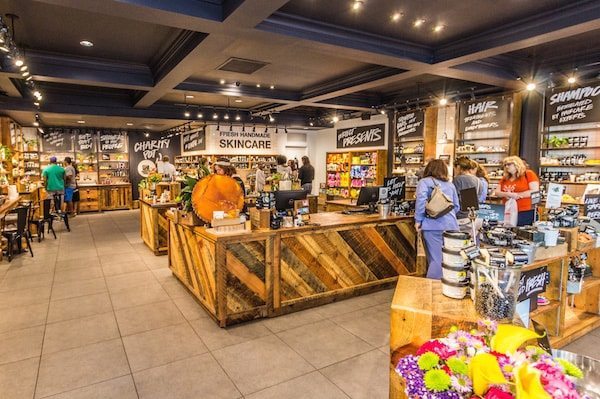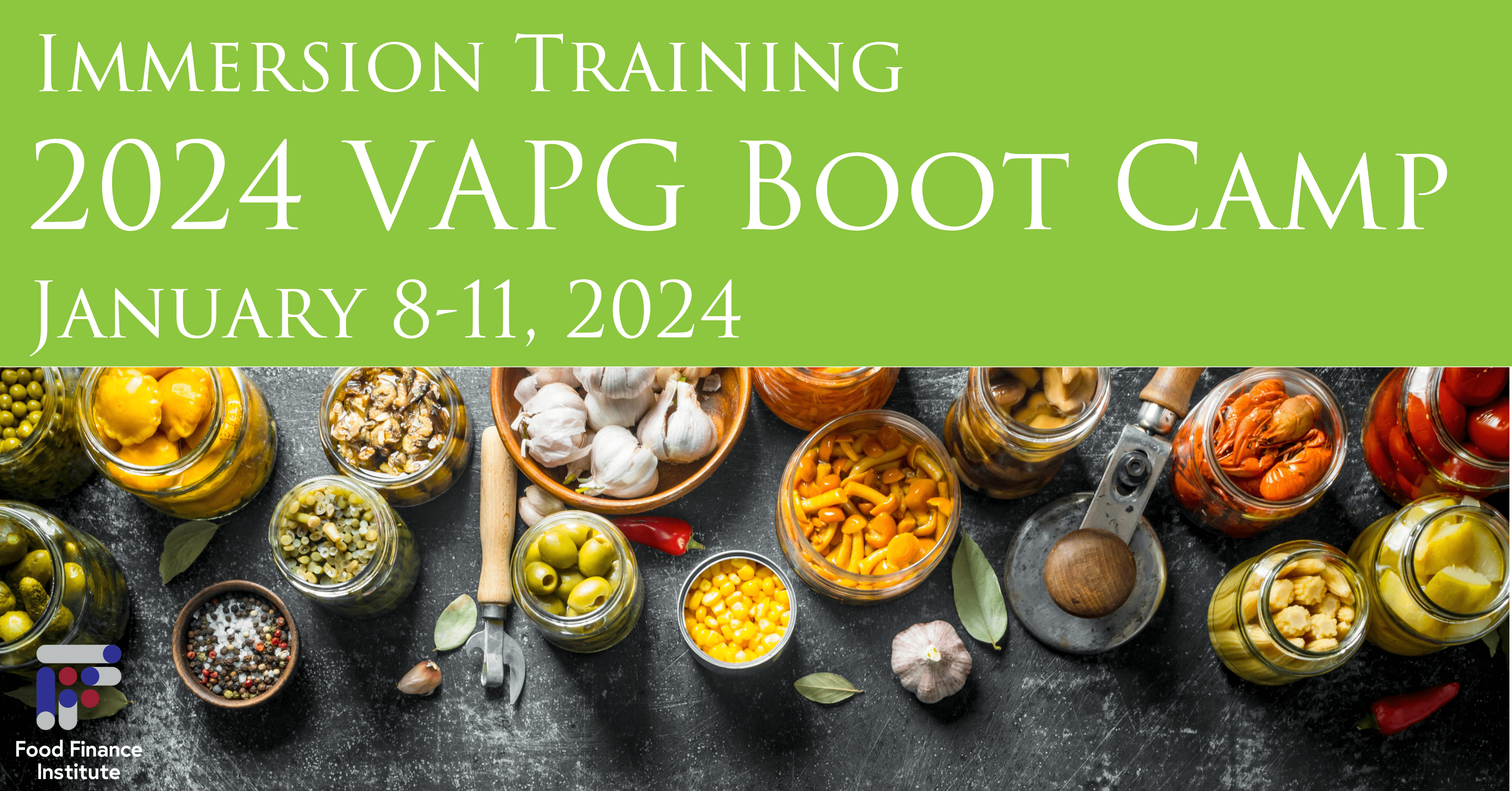Core beliefs animate everything that you do, in your personal life and in business. At the Food Finance Institute, we have a few core beliefs that undergird our work:
- We want every food, beverage and value-added agriculture business that wants to be successful to be successful;
- We know that to be successful, businesses need to understand their business model, their financial position and how to go about raising money; and
- We believe everyone that wants to learn the skills to be successful is capable.
The Food Finance Institute exists to provide high quality financial technical assistance to growing food and farm businesses. We focus on this because we believe it is the biggest gap in accelerating the growth and success of more good food and beverage companies. We have seen companies transform, grow and thrive when they have access to this kind of assistance and when the founders surround themselves with the right people, including technical assistance providers.
As consultants to food businesses, we see smart people who jumped in and hit the ground running but haven’t necessarily had the time or experience to fully understand their financial situation or come up with a concrete game plan for fundraising and financial management. We often play the role of “coach” or mentor in these situations, helping guide food entrepreneurs through difficult stages of business growth, like a significant fundraising round. The best food and beverage entrepreneurs know that they need help, and seek it out.
On our podcast this week, we talked with Alex Linkow, Director of the Fair Food Fund, an innovative Fair Food Network program that provides patient, customized financing and business technical assistance to good food enterprises. Alex talked about the importance of technical assistance to entrepreneurs and how that has been essential to their model of lending and investing in food businesses. He also intimated that lack of access to technical assistance, like lack of access to capital, is particularly acute for women and people of color.
Meaningful financial technical assistance can transform food businesses for the better, allowing them to grow and thrive. We encourage current and aspiring food entrepreneurs to seek the assistance they need and build their team with that in mind.
And now, our roundup of the best food and beverage finance news, events and resources from around the web…
 Business Model Insights
Business Model Insights
- Report details key factors for growth in online grocery market (Refrigerated & Frozen Foods) – “Online sales of groceries more than tripled between 2013-2018, but still accounted for only 2% of total grocery spending. Most of the online grocery sales growth has occurred since 2016, but looking ahead to 2023, online grocery sales are forecast to more than quadruple. The key issues over the next five years involve improving customer trust in terms of perishable selection by grocery packers and extending service to more geographical areas. Curbside pickup of groceries is growing extremely quickly, and the lower costs of pickup for both retailers and customers will give it an edge over home delivery models, which typically require that customers plan to be home during a 2-hour window in order to accept delivery.”
- How Bob’s Red Mill Company Became A Gluten-Free Giant Ahead Of Its Time (NPR)
- General Mills raised prices on cereal and yogurt. It’s working (CNN Business)
 Raising Capital
Raising Capital
- The ultimate checklist to prepare your business for investment (FFI’s Tera Johnson at Expo West 2019) – “Raising money is hard and preparation is key. You absolutely need:
- An investible business model
- A credible business plan that you know really well and can pitch in 5 minutes or less
- A rock solid financial plan with sources and uses of capital and capitalization plan over time
- Compliant legal documentation
- A plan to raise money”
- How to Build Business Credit on a Shoestring Budget (SBA Blog)
- Technology trends of interest to investors (New Hope Network)
CPG/National Brands
- How retail positioning helps boost CPG sales (Smart Brief) – “When items are displayed on a retail shelf, it may seem as if they’re positioned in random order, but there’s a tremendous amount of planning that goes into retail positioning. Brands and grocers that don’t spend time analyzing insights to determine where to put each product could be sacrificing sales. Here’s why: Consumers are drawn to products in certain locations, and even those that feature specific colors, according to an analysis from Shopify. Signage, lighting, product grouping and display all factor into consumers’ decision-making during their shopping journeys, so paying close attention to these factors can help retailers and brands boost sales.”
- The Omnichannel Race Tightens in the U.S. as Walmart, Instacart and Kroger are Closing the Gap on Amazon’s Digital Dominance (Nielsen)
- Brand opportunities with the changing natural consumer (New Hope Network)
Market Trends
- From the Expo West Aisles, Themes Emerge (Project Nosh) – “Despite the Walmarts, Targets and Krogers of the world investing heavily in their natural and organic product assortments, there’s still a place for natural retailers to serve as a testing ground for new products and brands. Whole Foods, in particular, offers brands the controlled space to try to sell innovative products to forward thinking consumers, all while still offering a national footprint. In the snack category, natural brands have long been accused of sacrificing taste in order to hit dietary needs such as vegan or low-fat. But with consumer acceptance of healthy fats and continuous flavor innovation on the flavor-side as well, those brands are hoping that’s no longer the case.”
- 5 of the biggest trends from Expo West 2019 (Mintel)
- How to engage with the new consumer (New Hope Network)
 Farming and AgTech
Farming and AgTech
- Lender explains what’s needed for smooth loan processing (MOSES) – “In all honesty, a lender wants to take as little risk as possible while making the most money possible. Farmers need to show they are a safe bet to repay the loan—that they are good at farming and keeping records. The difference between an approved loan and a denied loan can be as simple as how a farmer provides the farm’s financial information for the lender to review. In times where margins are tight and credit isn’t as readily available, you need to be able to show your lender that you know your business. Just being a good producer doesn’t mean what it used to 10 years ago.”
- Know Your Break-Even to Improve Operation Management (Compeer)
- Management ‘wall’ creates efficiencies, reduces labor costs for market farm (MOSES)
 Deals/M&A
Deals/M&A
- Food Distributors Hungry for Acquisitions (BGL Consumer Insider) – “Evolving consumer preferences and rapid technological change are transforming the food supply chain. Food distributors are refining offerings to capture on-trend products and capitalize on changing market dynamics, accelerating acquisition-driven growth. Changing demographics, rising disposable income, and the pursuit of healthy living are reshaping consumer demand for specialty, better-for-you, and sustainable food options. Purchasing behavior is favoring premiumization and authenticity over cost, and more consumers are spending on food outside the home. Technology and eCommerce are blurring traditional channels, fueling growth in new delivery methods. Food distributors are broadening portfolios in line with these consumer shifts, and recent acquisition activity is reflective of this strategy.”
- Money makes the natural foods and products world grow (New Hope Network)
- How is the flood of investment funds reshaping the food & beverage space? (Food Navigator USA)
 Industry Events
Industry Events
- Farm Finance Workshop (Angelic Organics) – $, 3/30 in Caledonia, IL
- Online Course: Cultivate Legal Resilience Through Food Safety Law (Farm Commons) – Free, 4/30 Online
- NCN XXIV Spring Investor Meeting (Nutrition Capital Network) – $, 4/23 – 4/24 in New York, NY
- Financing Your Consumer Product Company: Natural, Organic, Specialty, Retail & Premium (Natural Products Consulting) – $, 4/30 in Chicago, IL
- Becoming A More Effective Sales Manager In The Natural And Specialty Channel (Natural Products Consulting) – $, 5/1- 5/2 in Chicago, IL
- Live, Online Raising Equity Course (Food Finance Institute) – $, 5/6 – 5/20 online
- American Food Fair (National Restaurant Association) – $, 5/18- 5/21 in Chicago, IL
- Food Funded 2019 (Slow Money Northern California) – $, 6/6 in San Francisco, CA
- Nosh Live Summer 2019 (Project Nosh) – $, 6/10 – 6/11 in New York, NY
- Summer Fancy Food Show – $, 6/23 – 6/25 in New York, NY
- Expo East 2019 (New Hope Network) – $, 9/11 – 9/14 in Baltimore, MD
- Food and Ag Ideas Week (Grow North MN) – $, 10/15 – 10/20 in Minneapolis, MN
- National Farm Viability Conference 2019 (Multiple Hosts) – $, 10/22 – 10/24 in Redwing, MN
- Good Food Financing and Innovation Conference (FamilyFarmed) – $, 11/3 in Chicago, IL
- Business Tax Basics (UW-Madison SBDC) – $, 11/19 in Madison, WI



